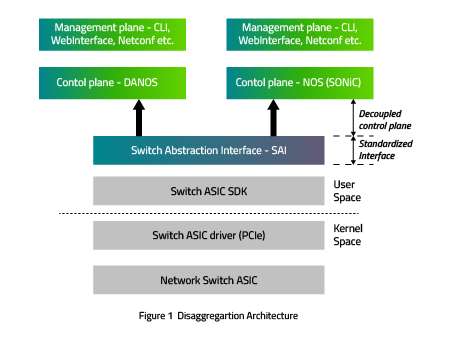A decade and a half ago, the healthcare industry wasn’t immediately concerned with a CRM and the kind of upside it could provide. The practice of healthcare was assumed to be more about taking care of patients and not necessarily consumers. The industry viewed CRMs as mostly contact management systems or just a database of names that helped with a focused direct mail outreach. At that time, most healthcare providers were devoid of marketing teams and the few that had a team certainly didn’t leverage technology in a meaningful way to maximize their results.
However, thanks to large scale digital transformation and the ubiquity of mobile devices, healthcare marketing isn’t what it used to be. Consumers are more informed than ever before and expect very customized care experiences from their providers. It goes without saying that all elements of the healthcare ecosystem must evolve to meet these changing expectations and the marketing department is no different – the need of the hour is to place the customer first and utilize intelligent insights to create personalized offers and campaigns.
To support this advancement, the right tools and technology need to be implemented. The main framework required is a healthcare analytics system that is supported by a Customer Relationship Management (CRM) platform.
CRM technology can provide consumers with pinpointed information about the efficacy of the communication channels they choose. In a data-dependent industry, a healthcare CRM can help in capturing abundant patient data and use it effectively to generate actionable insights. It should provide significant knowledge that helps healthcare marketers deliver personalized experiences while achieving growth through intelligent patient acquisition and retention strategies.
Consumer Data Security is Paramount in Healthcare
Several companies are working with rich data sets to best target their healthcare consumers. These data sets support myriad use cases ranging from national change of address data in new mover campaigns to social security death master records to abstain from reaching expired customers. While diving into condition-explicit analytics to power re-targeting and awareness campaigns, even HL7 standards are bumped upon. All of this conveys the importance of focusing on security of healthcare patient records and not glossing over important regulations in the short-term interest of running a timely campaign.
CRM Systems and Healthcare Marketing: A Winning Combination
Almost all hospitals and healthcare providers are aggressively vying for patients and this is true in both developed countries as well as emerging economies. In this inexorably competitive environment, CRM solutions are becoming necessary tools to not just touch the right audience with the right message, but to draw them into engaging conversations, keep them informed of timely offers, track the viability of these interactions and report on ROI.
Every hospital and healthcare system, regardless of size, benefits from a well-designed CRM solution if executed effectively. It helps organizations build engaged, committed and loyal audiences.
Healthcare marketing requires a CRM with features like:
- Powerful data driven models that predict future needs:When you have a detailed and nuanced understanding of your patients and how each one is unique, it is easier to recognize who is in danger of a medical emergency and predict your patients’ future health needs. This leads to designing effective, data-driven strategies that encourage timely intervention and preventive care apart from saving time and money by targeting only those that are most likely to use your services
- Sophisticated campaign management: CRMs can easily integrate with various marketing automation tools to empower effective campaign management. An integrated CRM can take advantage of true omnichannel programming to convey personalized, precision-timed messages to every patient and consumer in your database. Reach them on the web, with digital advertising, through social media, via email and SMS, and in print, and then easily measure the success of your campaigns.
- Target Audience: Built-in segmentation or modeling that can quickly target the right people for specific campaigns – the ideal target is likely to need the services at that specific point while also being profitable.
- Performance reporting attributes real results to your marketing endeavors: Set the target measures that are relevant to your goals and key to proving your impact. Track multiple levels of conversion and incorporate your encounter and financial data to demonstrate true ROI for omnichannel campaigns. Standard dashboards track key performance indicators across all marketing efforts across the healthcare system.
- API Access:Sophisticated targeting requires integration with other marketing technologies, so you’ll need to ensure most of your platforms are conversing to maximize your CRM’s capabilities.
Advantages of a Healthcare CRM
- Connects and analyzes numerous data sources, including consumer and patient demographics, clinical, budgetary, website, and more, to derive actionable insights.
- Makes sure the information is properly stored and organized.
- Generates a 360-degree view of consumers and patients by integrating information from multiple sources for a complete health profile.
- Controls who in the organization can access and use CRM information.
- Delivers exceptionally personalized and engaging outreach to target populations across channels.
- Maximize follow-up with both prospective and existing patients – a healthcare CRM should have the option to ingest and work with data from completed web forms, and it ought to have the option to do that securely.
- Create URL which helps in tracking information about prospective customers.
- Measure and track multi-channel marketing tactics (email, direct mail, SMS, social).
- Measure the success of engagement tactics using configurable reporting.
What should you look for in a CRM vendor?
In today’s cluttered landscape, choosing a CRM can be an exhaustive experience as it involves comparing several products that all seem to have similar features and pricing. Scratch beyond the surface and you begin to understand the nitty gritties of each tool along with their upsides and limitations. And this is only at a horizontal level – it would also be beneficial to evaluate CRM vendors who understand the healthcare market. As a set of guiding principles, you should look at the following traits in a CRM provider:
- A database explicitly intended for healthcare.
- Built-in segmentation or modelling that can rapidly focus on the right people for specific campaigns.
- Reports that can easily answer questions on the effectiveness of campaigns, from focusing on the right audience to tracking ROI.
- Ability to seamlessly orchestrate outreach and engagement to drive a truly close-knit patient experience.
- Ability to provide strong, accurate and latent data.
- Product configurability and adaptability to accommodate objectives and priorities that have been planned out as well as those that have emerged out of the blue.
- Subject Matter Experts that are healthcare CRM specialists.
- Several referenceable customers.
However, no CRM is a plug and play solution and needs the right kind of expertise to ensure its implemented seamlessly and is being leveraged to its optimal potential.
There is a lot to going on in their core business for most healthcare providers, we’d recommend leaving the implementation, management and evolution of an integrated technology platform to the experts who do it day in and day out. Let us know if we can help.

Prem is a Senior Engineering Manager at Happiest Minds with more than 13 years of experience in domains such as Media & Entertainment, Sports, Retail, Healthcare, Education and E-Commerce. He has worked on various technologies including but not limited to Java, Mobility (Android, Ios, Blackberry), Java Open Source Technologies like Javascript, Angular, Node JS and Express, AWS Cloud, Devops and various types of database.
Prem has done his Bachelor of Engineering with specialization in Computer Science from Visvesvaraya Technological University.







